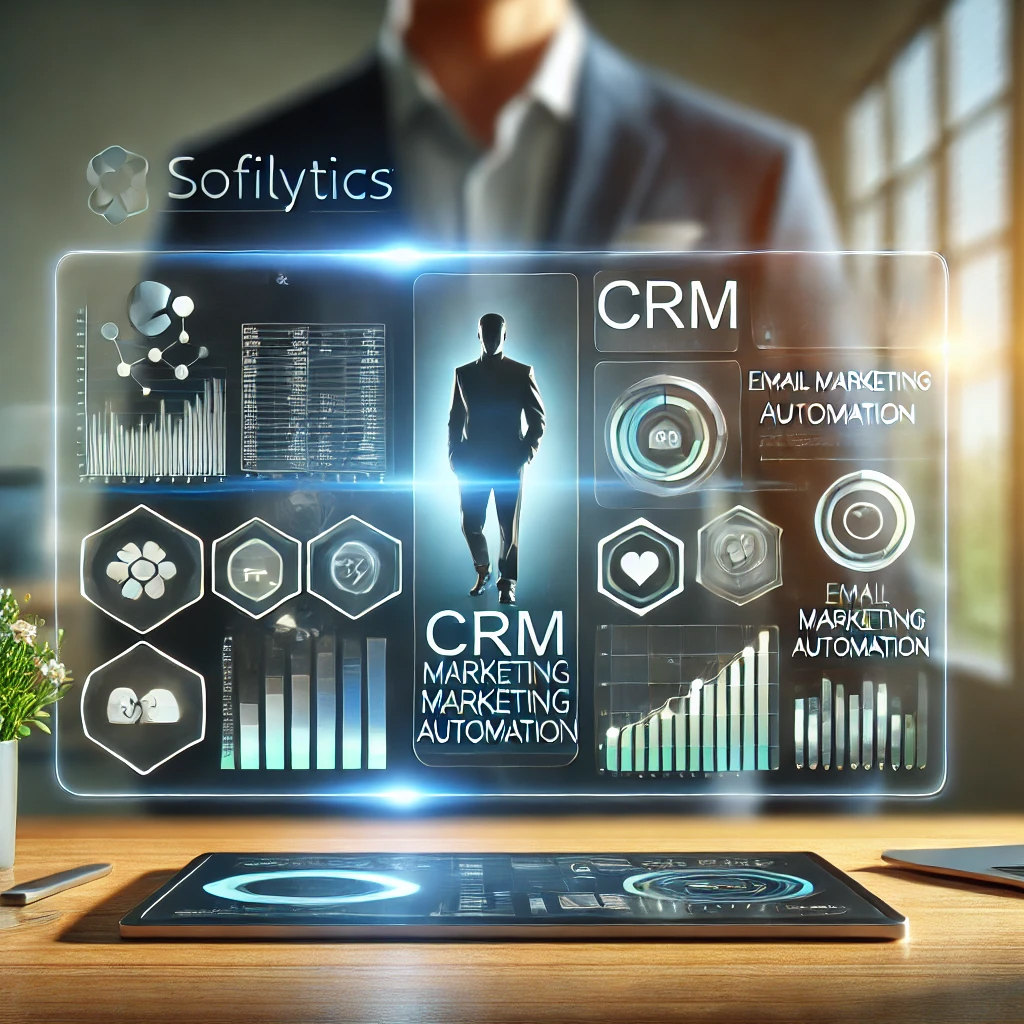For B2B companies, email marketing is a powerful channel to nurture leads, strengthen client relationships, and drive conversions. But to truly unlock its potential, a CRM system is essential. By leveraging CRM insights, B2B marketers can develop highly targeted and personalized campaigns that resonate with business decision-makers.
Here’s how to use your CRM effectively for B2B email marketing:
1. Build Segmented Email Lists for Precise Targeting
Audience segmentation is crucial. Your CRM provides detailed data about prospects’ industry, company size, buying stage, and engagement history—valuable insights for grouping contacts. Segmentation allows you to deliver messages tailored to specific business needs, enhancing relevance and engagement.
- Best Practices for Segmentation: Segment contacts by industry, job title, company size, and decision-making stage. Common segments might include potential leads, existing clients, and leads at a decision-making stage.
Personalize Campaigns for Higher Engagement
Personalization goes beyond names. Use CRM data to customize messages based on a prospect’s company profile, business challenges, and previous interactions with your brand. Personalized emails that acknowledge a recipient’s specific business needs or past inquiries build trust and set your emails apart.
- Examples of Personalization: Create custom email templates for industries, reference past webinars or demos they attended, or tailor content to their business challenges.
Automate Lead Nurturing with Targeted Workflows
Automated workflows are ideal for nurturing leads over extended sales cycles. Set up workflows for key scenarios, like lead qualification, follow-ups after sales presentations, or upselling to existing clients. CRM workflows ensure leads receive timely, relevant messages that guide them through the decision-making process.
- Examples of Effective Workflows: Automated follow-up emails after a meeting, product demo sequences, and content series for unengaged leads can all keep your company top-of-mind.
Track Engagement Metrics to Improve Campaign Performance
Your CRM tracks engagement metrics that are crucial for refining your campaigns. Analyzing open rates, click-throughs, and conversions gives you insights into how business audiences interact with your emails. Use this data to understand what content resonates with decision-makers and make data-driven adjustments to boost future engagement.
- Key Metrics: Monitor open rates (to assess subject line effectiveness), click-through rates (to gauge interest in topics), and response rates for high-value actions like scheduling meetings.
Leverage A/B Testing to Optimize Campaigns
Testing is essential in email marketing, where different audiences respond to different messaging styles. Many CRMs support A/B testing, allowing you to experiment with subject lines, calls-to-action, and content layout. Testing can help identify the most effective language and formats for connecting with business decision-makers.
- Examples of A/B Testing: Try A/B testing with various subject lines focused on ROI versus time savings, different value propositions, or calls-to-action like “Schedule a Demo” vs. “Request More Info.”
Create Dynamic, Data-Driven Content for High Impact
CRM data can transform your content into a dynamic, client-centered resource. Use fields like company name, industry challenges, and past interactions to populate emails with tailored insights. This approach establishes your brand as an industry expert that understands the recipient’s business needs.
- Examples of Data-Driven Content: Share content relevant to the recipient’s industry, offer case studies that reflect their business type, or reference past inquiries about specific product features.
Nurture Leads with Long-Term Drip Campaigns
Drip campaigns are essential in B2B marketing, where sales cycles can be lengthy. Your CRM can nurture leads through well-timed emails that deliver educational content and build trust over time. Set up campaigns that provide valuable insights, success stories, and thought leadership pieces that keep leads engaged until they’re ready to convert.
- Effective Drip Campaigns: Consider a drip series that educates new leads on industry best practices, demonstrates the ROI of your solutions, or provides content that aids in decision-making.
Optimize Send Times and Frequency Based on CRM Insights
Timing and frequency can impact the effectiveness of email marketing. Use your CRM’s data on when decision-makers tend to open emails to identify optimal times for your industry. Too frequent emails can risk disengagement, so focus on balancing informative content with an ideal cadence for each segment.
- Tips for Timing: Start with a biweekly or monthly schedule, and adjust based on engagement levels. For B2B engagement, mid-week mornings often work well, when decision-makers are more likely to be focused on work-related tasks.
Continuously Refine Campaigns with Integrated Analytics
Integrated CRM analytics are a goldmine for improving campaigns. Use metrics and insights to identify trends, spot high-engagement segments, and refine your messaging. A CRM-driven email marketing strategy lets you evolve based on real feedback, keeping campaigns relevant and high-performing.
- What to Analyze: Track engagement by industry segment, assess which content topics are most popular, and identify potential clients who may be ready for a more direct sales outreach.
By leveraging your CRM effectively through targeted segmentation, automation, and data-driven insights, email marketing can go beyond simple messaging and become a critical channel for lead nurturing and relationship building.
Ready to take your email marketing to the next level? Request a demo today and discover how Sofilytics data insight, automation, and testing tools can deliver targeted, personalized messages that build lasting business relationships.




